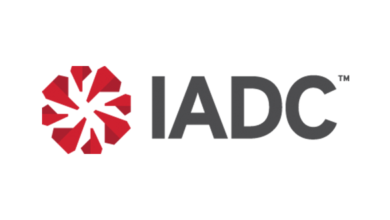Wirelines
Court rulings affirm OCSLA regulations do not apply to contractors
By Kelli Ainsworth Robinson, Associate Editor
Following the conclusion of two recent court cases – USA v. Black Elk Energy Offshore, and Island Operating Co v. Jewell – the US Bureau of Safety and Environmental Enforcement (BSEE) will no longer be able to hold contractors liable for violations of the Outer Continental Shelf Lands Act (OCSLA).
“It’s clear that, from both a criminal and civil context, the issue of contractor liability has been struck down,” said Jonathan Waldron, Partner at Blank Rome LLP. “The courts in both of these cases made it very clear that BSEE was trying to make a policy change without going to rulemaking after 50 years of precedent.”
In 2012, BSEE released an Interim Policy Document announcing that the agency would begin issuing Incidents of Non-Compliance (INC) and levying fines against contractors for violations of the OCSLA. Previously, INCs were issued only against operators, not contractors. “It was the operator’s responsibility to make sure that the contractor was complying with the law,” Mr Waldron said. The change in policy was likely a reaction to Macondo, he added. “The government never went after contractors before. After Macondo, they got very aggressive.”
Following a 2012 welding incident on a platform in the West Delta 32 lease area in the Gulf of Mexico, which resulted in an explosion that killed three people, the platform’s operator, Black Elk Energy, and two contractors were charged with criminal violations of the OSCLA and the Clean Water Act.
The contractors asked the district court to dismiss the charges on the grounds that OSCLA regulations have always applied to operators, not contractors. The court agreed with the contractors and dismissed the case. The government appealed the case to the US Fifth Circuit Court of Appeals. In September, the appellate court upheld the district court’s ruling.
In both the district and appellate courts, BSEE argued that general language in OCSLA regulations gives the agency direct jurisdiction over contractors, Mr Waldron said. Throughout OSCLA, expressions like “contractors shall…” are used, and BSEE used this wording to justify criminal penalties against contractors.
However, he added, regulations also limit criminal liability to operators/lessees. “The courts have basically said, by their own regulations, BSEE has never made any requirements directly applicable to contractors,” he said.
Island Operating Co. v. Jewell concerned civil penalties against contractors, rather than criminal penalties. On 23 December, the US District Court for the Western District of Louisiana also concluded that BSEE’s own regulations do not give it jurisdiction over contractors.
While both cases can still be appealed to higher courts, the Trump Administration may opt not to pursue these cases any further. “My guess is that the administration does not want to follow the route the Obama Administration did,” he said.
IADC voices support for H.R. 4329 Secure Act
In comments submitted on 6 November to the US House Natural Resources Committee, IADC affirmed its support for H.R. 4239, the Strengthening the Economy with Critical Untapped Resources to Expand American Energy Act (SECURE Act). Seven other oil and gas industry associations joined in on the letter to urge Chairman Rob Bishop and the Ranking Member Raúl Grijalva to swiftly enact the legislation.
“The SECURE Act serves to encourage further development of our nation’s abundant natural resources. The act would eliminate many of the burdensome bureaucratic roadblocks that currently prohibit industry from accessing the proven oil and natural gas reserves in the US,” said Jason McFarland, IADC President. “Additionally, provisions included in the act would provide for revenue sharing among the coastal states who host production off their shores. Most importantly, it sends a clear signal that the US is serious about its stated goal of energy independence and that it is committed to an industry that not only powers our homes and cars, but also contributes billions to the economy.”
IADC issues statements on proposed five-year plan
On 4 January, the US Department of the Interior (DOI) issued the draft 2019-2024 Outer Continental Shelf Oil & Gas Leasing Proposed Program. In response, IADC President Jason McFarland issued the following statement:
“Today’s draft proposed program is an important step forward in the legislatively mandated process that will ultimately determine the available leasing areas for oil and gas development on the US Outer Continental Shelf (OCS).
“The inclusion in the 2019-2024 proposed plan of waters off both the Atlantic and Pacific, along with areas in the Arctic and expanded areas in the Gulf of Mexico represents a commitment by this Administration to energy policies that will achieve their stated goal of US energy dominance in the world.
“IADC has long argued for access to areas that hold potential for oil and gas development. As an example, an estimated 3.3 billion bbl of oil and 31.3 trillion cu ft of natural gas are expected to be accessible off the coasts of Virginia, North Carolina, South Carolina and Georgia alone. The number and scale of the recoverable resources is large, and it can lead to thousands of new jobs and billions of dollars in investment that would result from such activity.”
Following the DOI’s announcement, Interior Secretary Ryan Zinke announced on 10 January that waters offshore Florida would be excluded from the Draft Proposed Program. Mr McFarland again spoke out in defense of industry, saying, “Just six days ago, this Administration released its draft proposed plan, which included 25 out of the 26 potential leasing areas on the OCS, including the three leasing areas that include waters offshore of Florida.
“IADC hailed last week’s action because we believe that it’s important to assess all of the nation’s OCS resources, which belong to the American people, to determine their potential for energy development. Secretary Zinke’s remark to remove Florida from consideration for any new oil and gas platforms is undisciplined and arbitrary and stands in stark opposition to the deliberative and inclusive process envisioned by the Outer Continental Shelf Lands Act, not to mention it represents an apparent about-face by the Administration, particularly at this very early stage in the process.”




